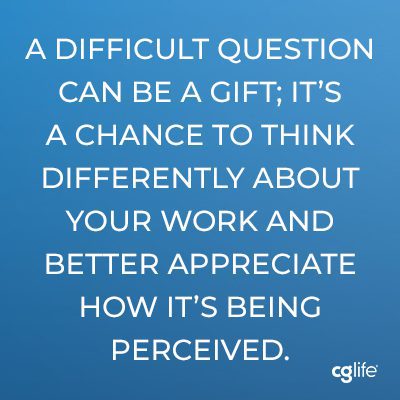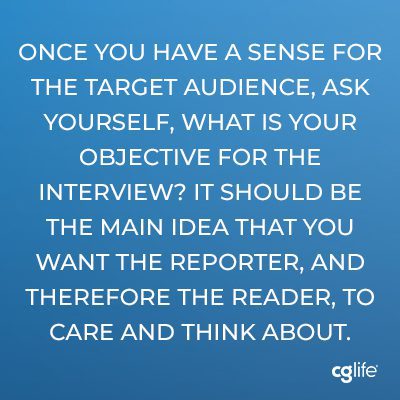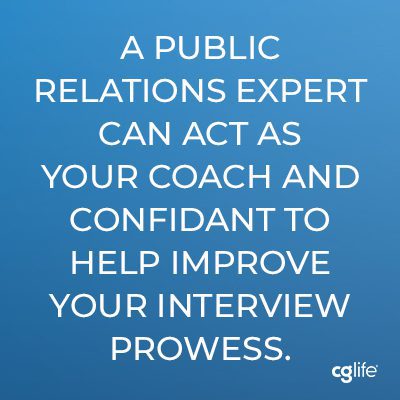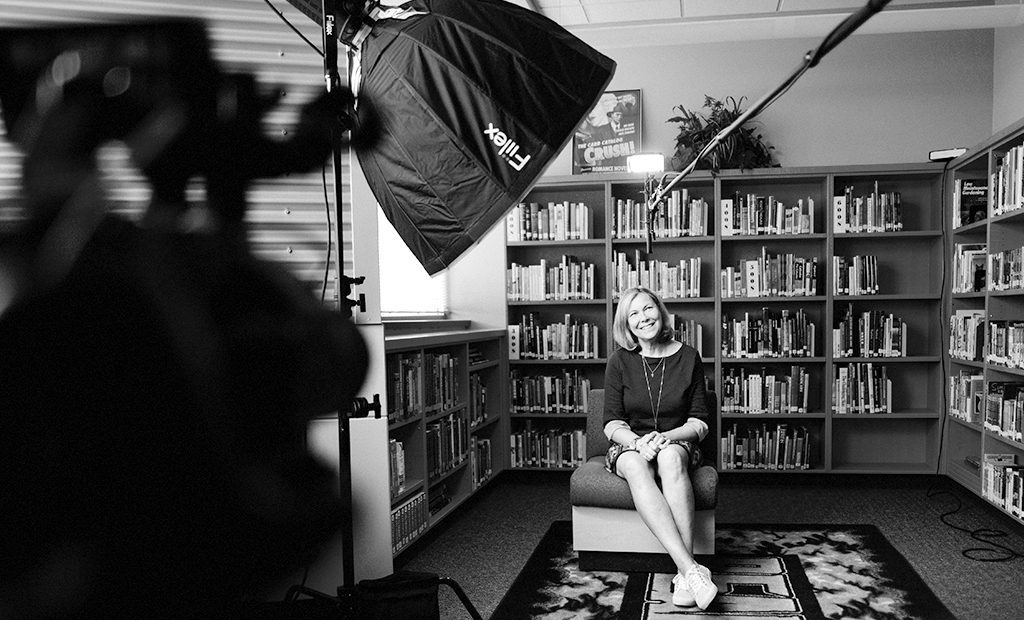In 1996, then Apple CEO Steve Jobs said, “It is always dangerous to give interviews.” Of course, he said that in an interview with the Wall Street Journal, so it couldn’t have been all that treacherous. After all, he took advantage of the opportunity.
Naturally, there are risks to engaging public audiences in any form, even if one has nothing to hide. The fear of underdelivering, being misinterpreted or misquoted, or feeling anxiety under the glare of the spotlight can weigh heavily on any spokesperson.
In a perfect world, both sides should come away from a media interview feeling that their needs were met. The science journalist enhances their story, and the spokesperson (and their organization) get to help lead the discussion while accessing new interested audiences. Importantly, the risks can be mitigated through preparation. By first thinking about what the journalist wants from the exchange as well as what your organization wants, we can seize the rewards of on message and compelling media coverage.
Understanding Science Journalists and What They Want
Generally speaking, journalists are usually well educated and experienced in their field of coverage. This is especially true in life science, biotechnology, pharmaceutical, and healthcare media. Since these journalists are often writing to educated or even expert audiences, their work often benefits from having a deeper appreciation for the information and its broader context. On its face, this might be intimidating. However, looking at it another way, this is an opportunity to have an in-depth conversation with an engaged and well-versed individual. That’s actually a rare treat!
Spokespeople often worry about the possibility of a more contentious interview, where interviewers ask difficult, unexpected, or loaded questions. While I can safely say that most interviews are just about collecting insight and NOT about catching the interviewee off guard, spokespeople sometimes gratuitously agonize over the possibility of tough questions. However, that’s not to say that media interviews are not or should never be somewhat adversarial. It can really be to your advantage.

Science is about the continuous improvement of ideas, through experimentation, evidence collection, and a willingness to constantly challenge old paradigms with new information. Look no further than dissertation defenses and peer review as examples of how more adversarial questioning can help drive improved scientific understanding. Similarly, science journalists sometimes ask challenging questions because it helps them get at the heart of the science and determine where the real story exists. In that way, a difficult question can be a gift; it’s a chance to think differently about your work and better appreciate how it’s being perceived.
Remember the all journalists are under intense pressure to meet editorial deadlines, story quotas, and evaluation standards based on views, clicks, or subscriptions. Throw a pandemic on top of that pressure, and you get a stressed writer who is looking to create a great story quickly. Journalists do not want excess jargon, evasive answers, or marketing speak. They need something engaging, new, superlative, insightful, or all of the above. Science journalists especially want tangible information, hard facts, and pithy quotes that they can weave into a narrative. And for that, they need your help. To accomplish this, you’ll want to prepare.
Preparing for the Spotlight
Before an interview, you can prepare yourself by thinking ahead and imagining the exchange. Do a bit of leg work to understand the publication’s audience and work to anticipate the journalist’s strategy for engaging their readers.

Once you have a sense for the target audience, ask yourself, what is your objective for the interview? It should be the main idea that you want the reporter, and therefore the reader, to care and think about. Keep your primary idea front of mind, and then write down or practice the three main messages that support or expand on your main idea. During an interview, you should keep this at the forefront. Use these concepts throughout your interview. Steer answers (where possible) back to these ideas. If pressed, provide real-world examples or data that illustrate these concepts. Having nicely packaged examples and evidence in your back pocket streamlines the entire process for everybody involved. To this end, don’t forget your scientific team! Your scientific leaders can help you source pertinent data and avoid inaccuracies, so don’t be afraid to ask for their thoughts and advice.
Finally, find different ways (if possible) of articulating your messages, so you won’t repeat yourself over and over. Seriously, PRACTICE. Like every skill, it becomes easier with practice.
Nailing the Interview: 11 Helpful Tips
Understanding science journalists and preparation goes a long way towards being interview-ready. That said, interviews are best when they become more conversational discussions. That means you can’t possibly prepare for everything. Instead, it helps to keep some best practices in mind that guide off-the-cuff interactions. Here are 11 of the most important:
1) Be natural —Sound like yourself and exude confidence by using your own language style and breathe!
2) Take a breath —Briefly pausing before answering a question will give you a second or two to formulate your answer.
3) Answer the question you wish you were asked —If possible, bridge your answer from a potentially negative topic to something positive.
4) Know when to stop —Don’t offer more than an answer or you risk getting lost in the details; keep answers sharp and crisp.
5) Be benefits-oriented —Explain “why it matters” or in other words: talk less about what you do, more about how it impacts others.
6) Don’t fake it —It’s okay to say you are unfamiliar with something or that a topic is outside your area of expertise.
7) Reiterate key concepts —Not every word you say will be used in the article, so the more frequently you hit your marks the better chances you get quoted.
8) Do not highlight competitors; highlight solutions —Address the weaknesses of categories, methods, or solutions but not directly about the competition themselves, and remain diplomatic at all costs.
9) NOTHING IS OFF THE RECORD —Be mindful. Anything you say may be used, and remember the interview is not over until you hang up.
10) “No comment” isn’t a thing —Ever. Seriously. It only works in the movies and for lawyers.
11) Remember to highlight at the end —At the end, most reporters ask if there’s anything else. Use that opportunity to restate and summarize the main idea and tick through the three supporting key messages.
Don’t Be Afraid of Getting Expert Help

While these tips can help you maximize your interview success and media exposure, remember that you can always get help (if you want or need it)! A public relations expert can act as your coach and confidant to help improve your interview prowess. PR pros can provide an outsider’s view of your work, challenge you with novel questions, help craft difficult answers, and develop those key takeaway messages. Preparation goes a long way, and when it comes down to it, it’s often easier to prepare if you’re working with a person that lives, sleeps, and breathes media relations.
If you’re looking for that PR partner, remember CG Life’s PR team is only a click away. Reach out today
